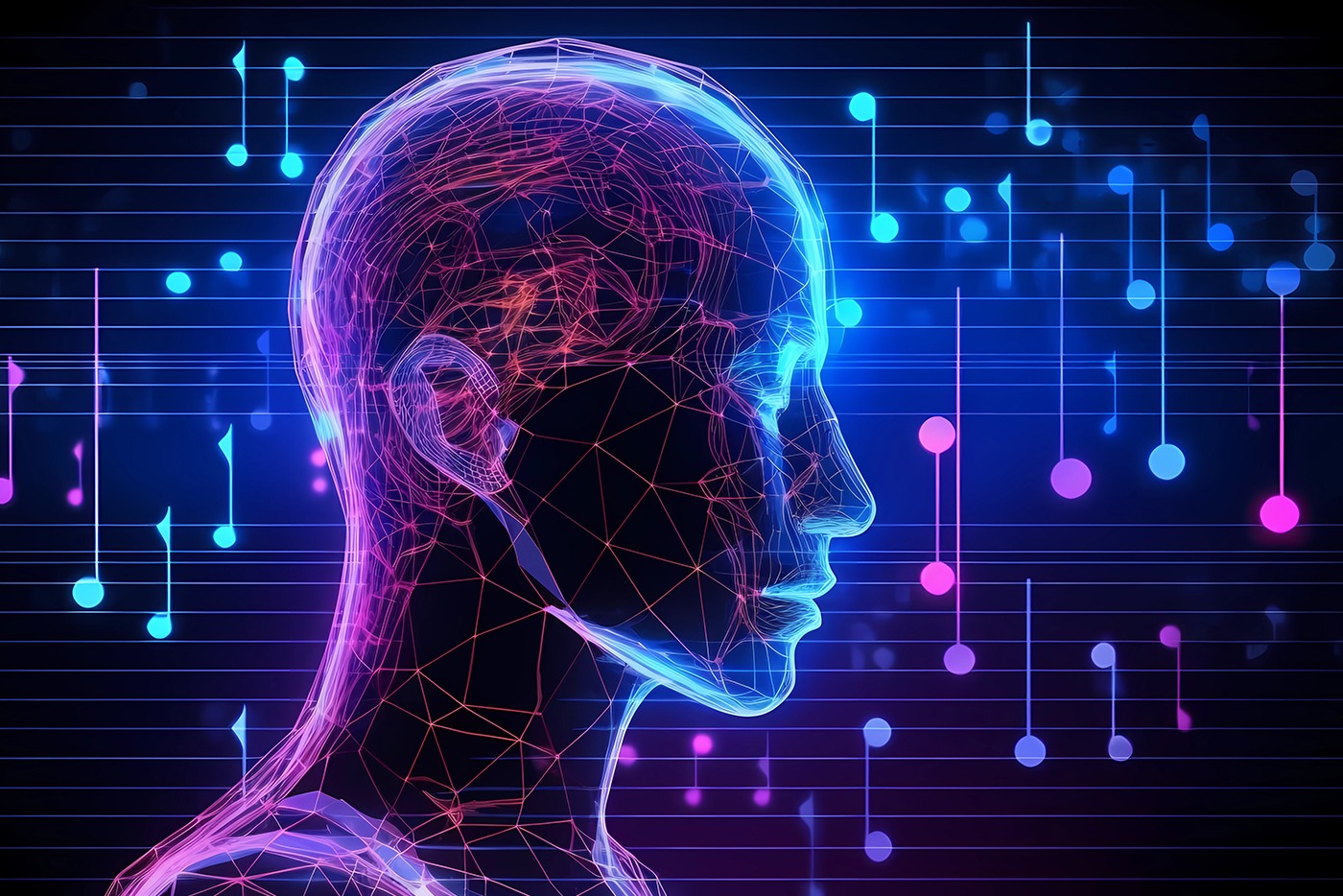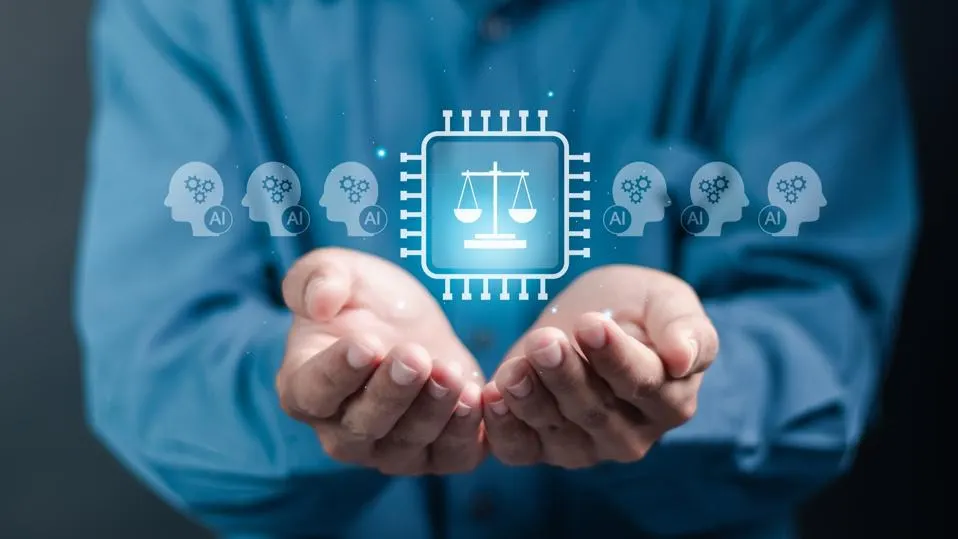Generative AI Is Revolutionizing Music: Loudly’s Vision For Democratizing Creation
22 October 2023
For me, one of the most exciting aspects of the recent wave of generative AI technology is the democratizing impact it has on creativity. We’ve seen how anyone can use tools like ChatGPT or Midjourney to express their ideas with words or pictures. And the way we create and listen to music is about to be turned on its head, too.

Loudly is a generative AI-driven music platform that aims to allow anybody to “create, customize and discover music." Recently, I was joined by founder and CEO Rory Kenny for my podcast, covering a number of topics that I personally find fascinating.
Does AI threaten human creativity by ushering in a future where all of our art and entertainment is conjured up from digital data by super-smart computers?
Or does it allow us to augment and enhance our inherent human creativity in new and exciting ways, breaking down social and technological barriers to creativity and enabling us to express ourselves in new ways?
This was just one of the questions that Rory and I hoped to get to the root of – while also taking an overview of the fascinating technology and the business model behind the platform.
What is Loudly?
Essentially, Loudly is an AI music creation platform trained on 10 million songs, built from a bank of 200,000 sounds. Users can generate their own royalty-free music for their projects by using simple natural-language prompts. For example, ask it to create a soundtrack for your product launch video, photographic slideshow or just family videos, and that’s what you’ll get. You can choose the style of music, the tempo, and the mood, or select individual instruments.
All of the sounds are based on human-generated recordings rather than being synthesized. Any of the songs can be customized to fit individual projects or new songs can be created from scratch.
The concept is “music as code”. This means that rather than existing as a linear soundwave, it can be interacted with at a granular level to create potentially billions of different sounds.
Importantly, Loudly itself owns the copyright to all of the music that the system has been trained on, meaning there’s no danger that musicians will feel they have been ripped off by having their existing work fed into the AI and then used to generate derivative works.
AI and the Democratization of Music Creation
Eventually, Kenny believes, “I think it’s very obvious that AI will be embedded in pretty much all creative tools.
“It’s already happening with image generation, so music … it’s going to be the same thing.
“Whether you’re in video creation or in digital audio workstation software, you will have AI that’s there to deliver some kind of access or enhancement.”
This will offer billions of people who may have always wanted to enjoy making and playing music but who lack the technical skills to do so the chance to find an outlet for their ideas and creativity.
In many ways, it can be considered a logical next step in a music ecosystem where streaming services have already democratized distribution. Today, anyone can easily upload their songs and find an audience – thousands are uploaded to services like Spotify and Soundcloud daily.
Kenny says, “The next thing that’s going to happen is what I’m calling the era of mass creativity … this has already started. The big question is what’s going to happen as we move through that era and … how will that impact artists?”
Kenny refers to the creative individuals who will become musicians thanks to the enabling power of AI as “AI-first artists.”
“With music creation tools … they can potentially just go to different platforms and generate music. They can even create their own synthetic artist profiles with image generation; they can create a backstory with ChatGPT … they can create a narrative to what their career is about … with the advent of mixed reality … they can even put on live shows.”
AI-Powered Superstars
So, while that may give us mere mortals a chance to live out our dreams of becoming synthetic pop stars, what about actual artists who already have the technical skills to create music but want to supercharge them with AI?
Kenny illustrates the potential here with an example from the past – when Bob Dylan famously went against convention by playing an electric guitar at the Newport Folk Festival in 1965. For his attempts to innovate, he was jeered and booed by conventionalists. But the occasion is now celebrated as a pioneering moment in the history of popular music.
“It was controversial,” Kenny says, “And he broke away from convention, and he adopted the technology. Because I think at the end of the day, if you are an artist and highly creative … the temptation was too strong.
“He suddenly could access a whole new kind of genre … a larger audience … a new toolkit. And he could also evolve his narrative, his musical legacy. Our musical history is richer because he made that decision.”
The theory encapsulates Kenny’s ideas about how music – and creativity in general – will evolve as new tools and technology come onto the scene. It’s what’s happened throughout history, after all. So it makes sense that AI – perhaps the most revolutionary new “toolkit” of all time, will have a similarly transformative effect. Right?
Unintended Consequences
Of course, despite the hype, excitement and optimism, we certainly shouldn’t ignore the fact that there are many people out there who are concerned that AI might impact music and creativity in less positive ways.
This is hardly surprising as the emergence of AI, and generative AI in particular, has prompted fears ranging from a decline in demand for humans in creative jobs to a “dumbing down” effect on culture stemming from a surge of AI-generated art.
Kenny believes this could be generational – “There are surveys suggesting that people who are, let's say, a little bit younger, between 16 and 25, are really open to using AI tool as the first thing that they interact with to learn about how something words .. to learn about, you know, what is good writing … what is a well-formatted essay, or a well-constructed song.”
To the others, perhaps members of older generations?
“I think my main tip is … is not to be afraid of it, and avoid it. It’s always good to move towards the challenge, right? So you can solve it for yourself. Move towards the unknown and just start to explore it.
“Be like Bob Dylan, you know, pick up that electric guitar and plug it into your amplifier to hear what your music sounds like.”
Related Articles
Will AI Solve The World’s Inequality Problem – Or Make It Worse?
We are standing on the cusp of a new technological revolution. AI is increasingly permeating every aspect of our lives, with intelligent machines transforming the way we live and work.[...]
How You Become Irreplaceable In The Age Of AI
In a world where artificial intelligence is rapidly advancing, many of us are left wondering: Will AI take our jobs?[...]
Why Apple Intelligence Sets A New Gold Standard For AI Privacy
In the rapidly evolving world of artificial intelligence, privacy concerns have become a hot-button issue.[...]
Can Your Device Run Apple Intelligence? What You Need To Know
Apple's announcement of Apple Intelligence has sent waves of excitement through the tech world.[...]
10 Amazing Things You Can Do With Apple Intelligence On Your IPhone
Apple Intelligence is poised to revolutionize the iPhone experience, offering a suite of AI-powered tools that promise to make your digital life easier, more productive, and more creative.[...]
Agentic AI: The Next Big Breakthrough That’s Transforming Business And Technology
The world of artificial intelligence is evolving at a breakneck pace, and just when you thought you'd wrapped your head around generative AI, along comes another game-changing concept: agentic AI.[...]
Sign up to Stay in Touch!
Bernard Marr is a world-renowned futurist, influencer and thought leader in the fields of business and technology, with a passion for using technology for the good of humanity.
He is a best-selling author of over 20 books, writes a regular column for Forbes and advises and coaches many of the world’s best-known organisations.
He has a combined following of 4 million people across his social media channels and newsletters and was ranked by LinkedIn as one of the top 5 business influencers in the world.
Bernard’s latest book is ‘Generative AI in Practice’.










Social Media